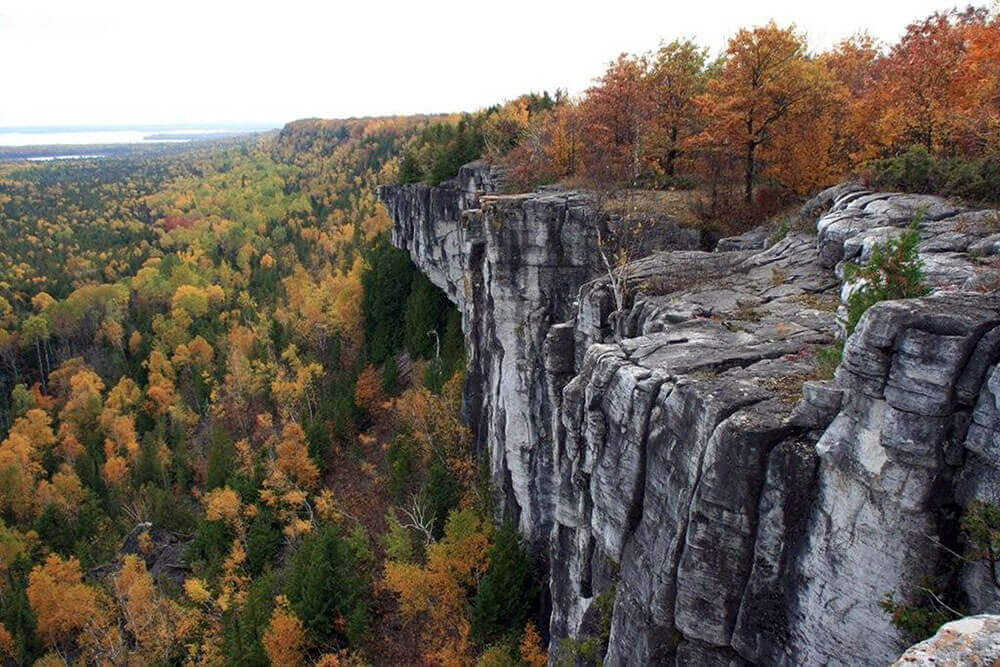Look at the map of the Canadian Shield, what do you see? Where does its name come from? Is there anything special there? What’s unique about the landscape and the people there? Here is everything you need to know about Canadian Shield.
Why Is It Called Canadian Shield?
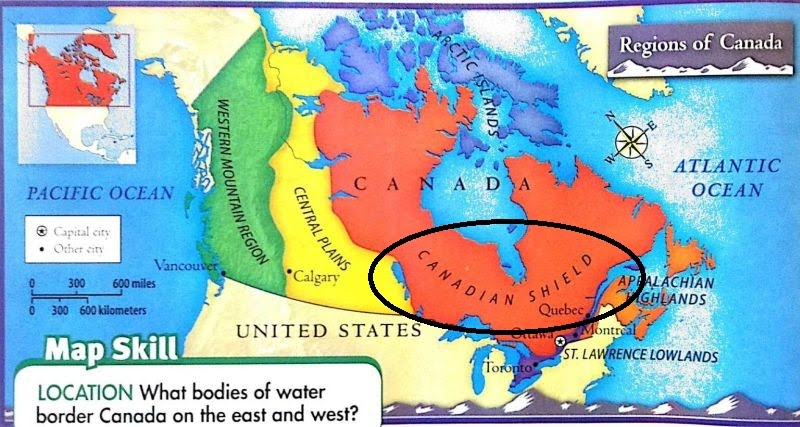
People called it the Canadian Shield because of its shape. Its shape bears a resemblance to an ancient Shield, which is to protect North America.
Its raw surface makes it useful for hydroelectric power generation, logging, and mining.
History – Canadian Shield
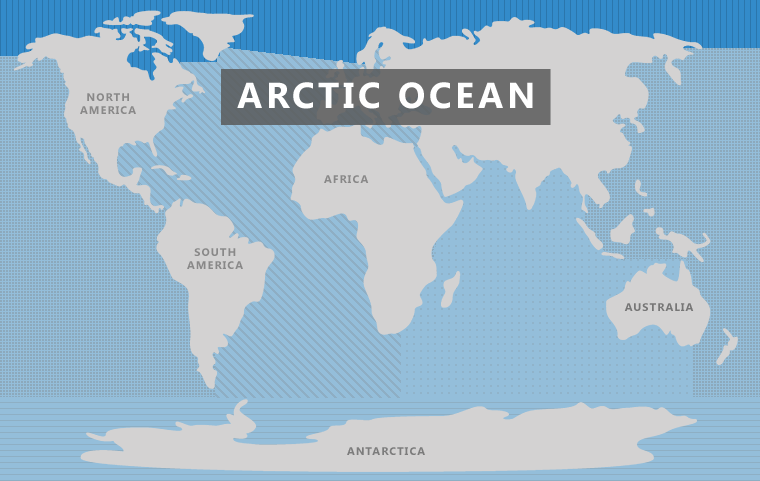
According to the map of Canadian Shield was once part of the Arctica continent.
Because of the Canadian Shield’s volcanic history, this region consists of mostly metamorphic and igneous rock that dates back to the Archean eon and Precambrian eras. Some of these rocks existed back then 3.96 billion years ago. These are also the oldest rocks in Canada.
The Earth’s crust, which began colliding over 3 billion years ago, made up the Shield.
The Shield had a thin layer of soil on it. That layer had formed the nucleus of the North American craton. Then, glaciation from the last ice age covered the entire Shield. As a result, farming is not ideal here. Glaciation also played a part in filling the Shield with rivers and lakes.
Canadian Shield once consisted of many large mountains and active volcanos. Over time, however, it had eroded and now mainly contains low mountain ranges.
Topography
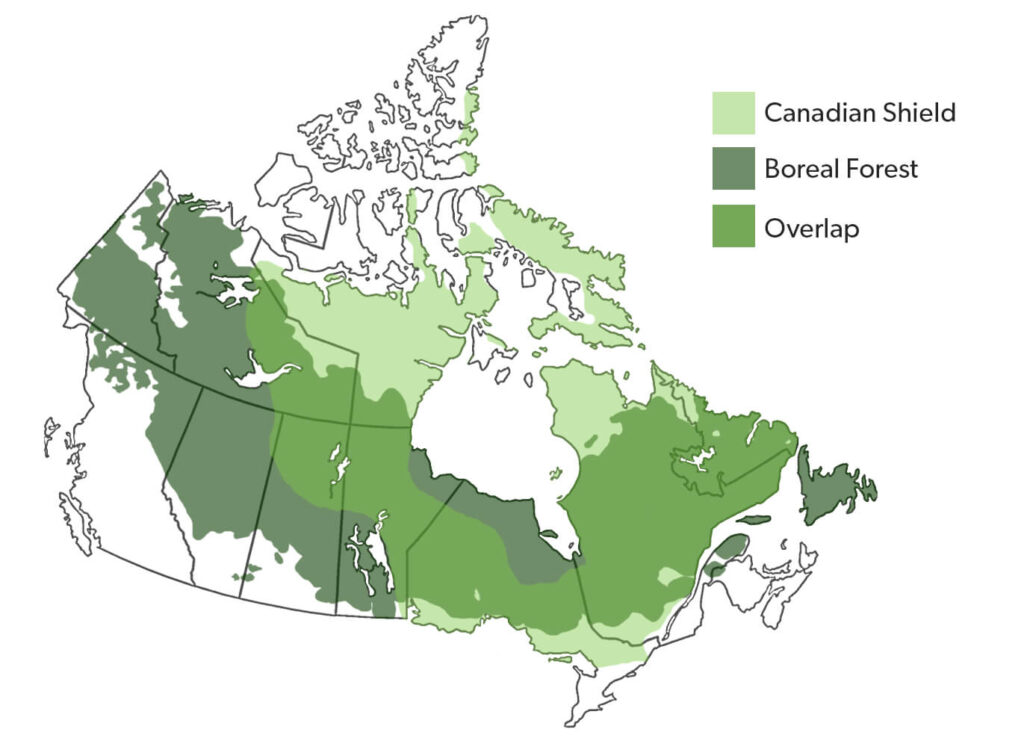
Edges of the Shield contain the great waterways and lakes of Canada such as Lake Winnipeg, Great Bear Lake, etc. The better part of the region is covered with forest and snow. The north is underdeveloped with little to no humans inhabiting it. The south, in contrast, is nearly full of humans building up towns. Significantly, this place has several small mining towns, that profit from the rich mineral deposits of the Shield.
Tourism – Canadian Shield
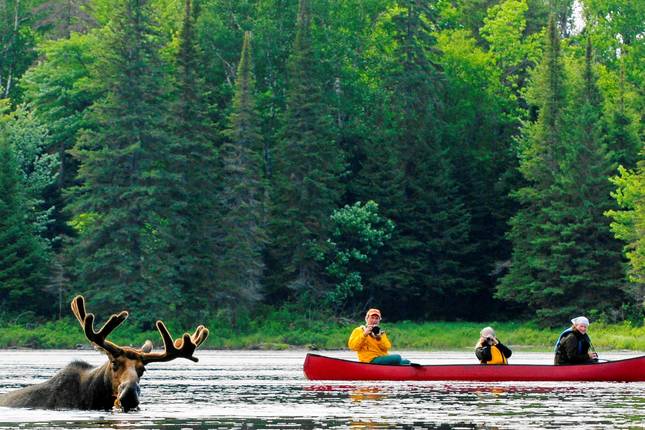
The billions of years of erosion have caused the Shield to be flattened enough for people to build hotels and recreational sites.
Canadian Shield offers many water-related activities such as fishing, canoeing, water-skiing, etc. There are just as many land activities as the water ones. For example, hiking, camping, hunting, snowboarding, etc. This place also has wonders that are worth sightseeing.
Wildlife
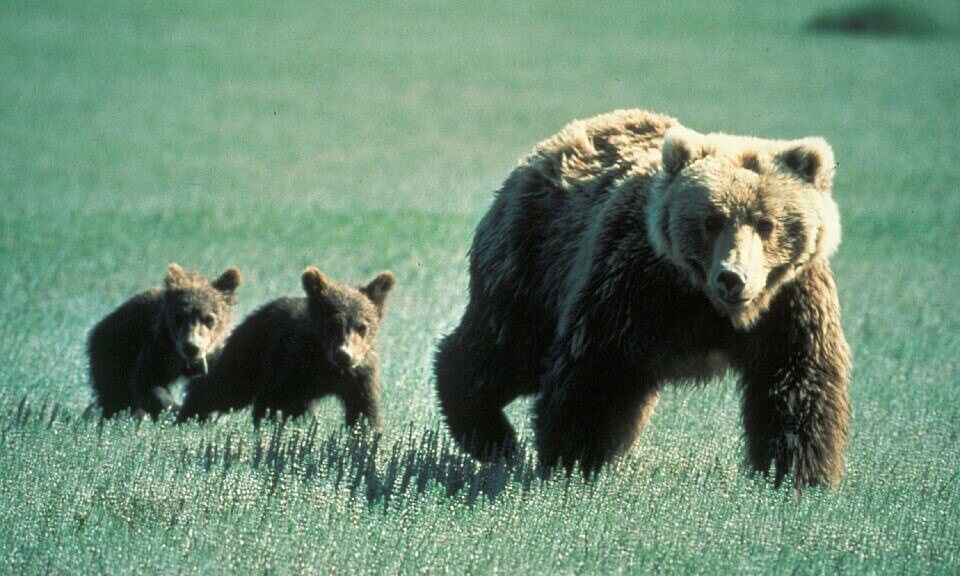
Animals choose this environment as their shelter due to the rich natural resources of food this place has offered. You can find foxes, beavers, moose, black or grizzly bears, etc. here.
There is also a significant amount of muskox that is recovering from overhunting.
Related Posts You Can See:
Top 5 Unreal Lakes in Banff, Canada
Alberta Lakes to Visit for the Most Spectacular Fall Color Views
